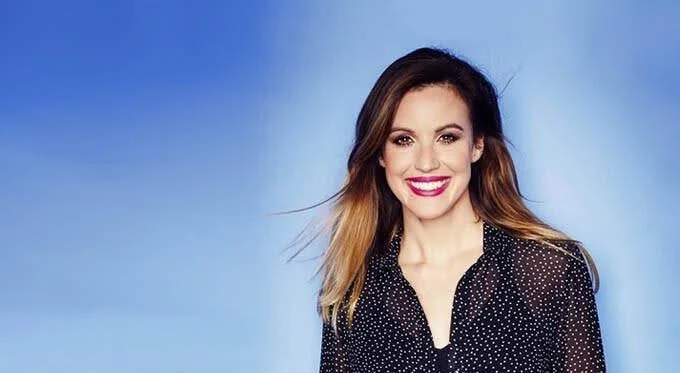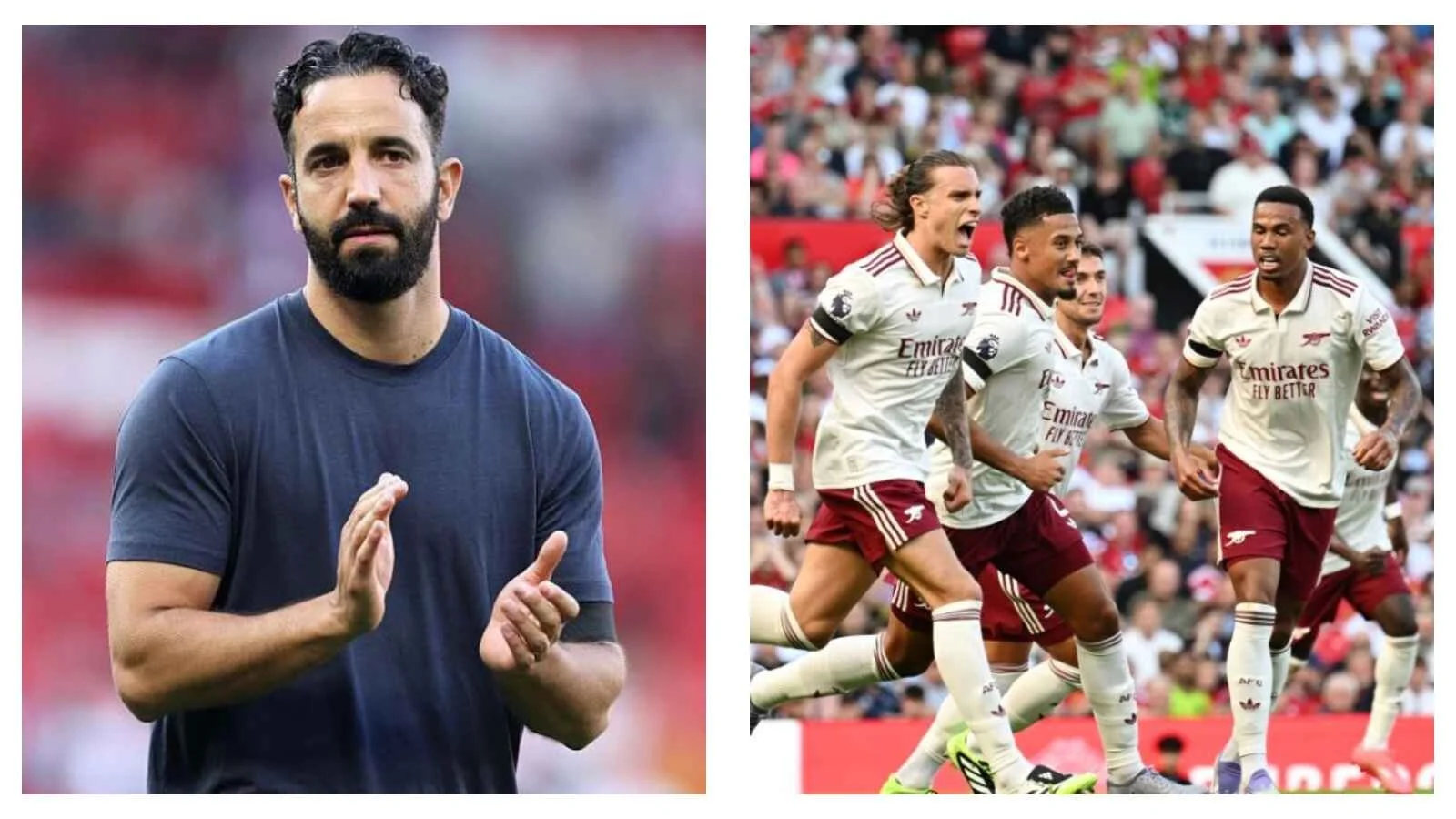Breaking barriers in broadcasting: Charlie Webster on resilience, equality and sport
Charlie Webster is one of the UK’s most groundbreaking female TV presenters, making history as the first woman to host football in Asia and to anchor a heavyweight world title fight.
She has fronted coverage for BBC, Sky, ITV, ESPN, and Channel 4, bringing authority and energy to global sporting events.
Her journey goes far beyond broadcasting. A survivor of malaria that left her in a coma, Charlie has become a powerful advocate for mental health, domestic abuse awareness, and global health issues.
Her work spans acclaimed documentaries, podcasts, and keynote talks worldwide.
In this exclusive interview with The Champions Speakers Agency, Charlie reflects on her career in sport, the challenges of breaking into a male-dominated industry, and why storytelling matters more than ever.
Her story blends resilience, purpose, and inspiration - proving why she stands among the most influential voices in broadcasting today.
Q: You made history as the first woman to host a heavyweight world title fight. Looking back, what did that milestone mean to you personally and professionally?
Charlie Webster: “It felt amazing to host the heavyweight world title fight and actually be the first woman to do so. And actually, the first woman to work in boxing globally, because I wanted to do that from a very young age.
“I was a massive boxing fan. I still have loads of Muhammad Ali books. I used to read his books from such a young age, and I don’t even know why. I think I loved it because, to me, it was more about the stories off the ring and out of the ring.
“There was so much strength in the sport, and I loved it. I still do. I still train - I’ve got a boxing gym just down the road.
“I was passionate about the skill of boxing, the mental side of it, and the amazing human stories.
“The boxing ring is a tool and a voice for anyone - from Muhammad Ali to people who might not have had opportunities when they were younger. So when I achieved that, I was overwhelmed, because I remembered as a child wanting to stand by the ring with a microphone.
“But the other reason it was significant was because, when I first asked for an opportunity to join a boxing team at the network I already worked for, the head of that network told me, ‘No, boxing isn’t ready. The boxing world isn’t ready for a woman.’
“That was before the 2012 Olympic Games, before women were even allowed to box in the Olympics – which Nicola Adams went on to win gold in.
“I was shocked, but I had heard those attitudes before. I thought, why does being a woman mean I can’t talk about boxing?
“I trained, I fought, I learned to commentate, to score - I knew the sport. There were already professional female boxers then, even though the sport has grown so much since.
“I remember walking out of that office and thinking, I’ll prove you wrong. So I kept pushing. While presenting Sky Sports News, whenever there was a boxing segment, I asked to present it.
“When women were allowed to box in the Olympic Games, I asked to cover them - and also the men. From there, it grew.
“There’s a huge message in that: if someone says you can’t do something, it doesn’t mean they’re right.”
MORE LIKE THIS: F1 news: Freelance data engineer and technical coordinator Nida Anis on breaking barriers and women in Motorsport
Q: Sports presenting is a notoriously tough industry to break into. What were the key challenges you faced at the start of your career, and how did you overcome them?
Charlie Webster: “I think what I did was I just never gave up. I had so many people turn around and say no. I was tall, very blonde at the time, and people judged me, assuming I didn’t know what I was talking about. That horrible stereotype - being judged on appearance.
“I also had a broad Yorkshire accent, which I think people didn’t take seriously. I was rejected so many times, and often told, ‘We don’t want a woman.’
“But these are things I couldn’t change. I couldn’t change being a woman, or from Yorkshire, or the way I looked.
“And actually, all those things became my assets. What one person might see as a negative could be the exact reason another person wants to work with you.
“It’s a tough industry. I had no contacts, no money, no family connections in the business. I moved to London not knowing anyone.
“I made contacts, put myself on courses, studied journalism, and worked other jobs - personal training, teaching fitness, even modelling - to pay my way. I kept learning my craft, making sure I knew what I was talking about.
“That’s how I got into sports forecasting. My first job was in football, with over 1,000 applicants. I nearly walked out of the interview because I thought I didn’t fit in - I was in jeans and a T-shirt, while everyone else wore suits and was older.
“But I knew football. I’d grown up in Sheffield, played the game, loved it. I could talk about it all day. That passion got me the job.
“From there, I pushed on. Sometimes I worked so hard for things and they didn’t happen. Other times, I worked hard and they did. That’s important to remember.”
Q: We’ve seen huge progress for women’s sport in recent years, but there’s still a long way to go. From your perspective, how close are we to achieving true equality in sport?
Charlie Webster: “No, we haven’t reached equality in sport, but it has improved since I started my career. Back then, there was no professional women’s sport.
“Now it exists, which is amazing. Young people can see a viable career path as professional athletes, which I couldn’t when I was younger.
“Broadcasting has also changed. When I started, I hardly ever worked with women - in front of or behind the camera. It was a men’s club.
“Now, we’re seeing women on screen, coaches, and more roles opening up. But it’s still not an equal playing field.
“Even recently, the focus after disruption in sport was all about getting men’s sport back first, not women’s. That shows where money and attention still lie.
“The 2023 Women’s World Cup made massive steps for equality, but the conversation quickly shifted back.
“Change takes time, but it’s happening. It’s especially visible with young children - they’re growing up with opportunities my generation never had.”
YOU MAY ALSO LIKE: Man Utd news: New-look Red Devils show promise in opening-day defeat to Arsenal at Old Trafford
Q: Football and wider sport are increasingly recognised as powerful tools for wellbeing. How do you see their role in supporting mental health, both for individuals and communities?
Charlie Webster: “Sport, especially football, plays a huge role in mental health. On an individual level, it helps enormously - for me, it’s therapy, meditation, and something I couldn’t live without. It gives structure, identity, achievement, and hope.
“On a community level, it brings people together. Football creates friendships and safe spaces. You can be at a match and connect with someone completely different from you just because you support the same team. It breaks barriers across ages and backgrounds.
“Sport also creates conversations that might otherwise be difficult. Through my podcast My Sport in Mind and work with the EFL and Mind, I’ve seen how football can open up discussions about mental health, especially for men who often struggle due to stereotypes. Sport is a safe way to break stigma and talk about mental wellbeing openly.”
This exclusive interview with Charlie Webster was conducted by Megan Lupton of The Motivational Speakers Agency.
READ NEXT: Chelsea find promise in Josh Acheampong and Estevao after opening draw to Crystal Palace



